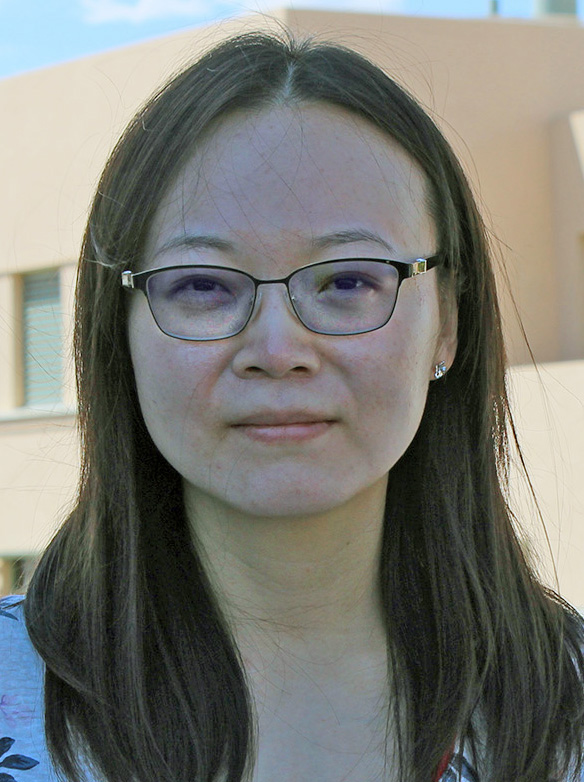Recent News
UNM Engineering Ph.D. candidate named ASCE ‘24 Outstanding Reviewer
August 11, 2025
UNM joins Brown University in national institute focused on intuitive, trustworthy AI assistants
August 6, 2025
UNM Engineering team wins ASEE best paper for work on first-year engineering course
July 17, 2025
New director will enhance interdisciplinary engineering learning opportunities
July 2, 2025
News Archives
UNM researcher receives NSF funding for project to manage carbon dioxide in manufacturing
September 21, 2021 - by Kim Delker
A faculty member from The University of New Mexico is one of the researchers on a recently-funded National Science Foundation project that focuses on carbon capture and conversion in manufacturing.

Shuya Wei, an assistant professor in the Department of Chemical and Biological Engineering, is a co-principal investigator on Tri-state Research Institute of Manufacturing for Managing CO2 (TRIMMing CO2). The $6 million project is led by the University of Louisiana at Lafayette and includes faculty from New Mexico State University and West Virginia University.
The goal of the project is to develop innovative manufacturing processes to advance carbon capture and utilization. The team expects to develop cutting-edge technologies that will capture CO2 while producing electricity, utilize CO2 while storing electric energy and convert CO2 to high-value chemicals.
Wei joined UNM in fall 2019 as a tenure-track faculty. Her research interests are understanding the fundamentals of electrochemical processes and developing next-generation, high-energy metal batteries. She will lead the thrust on utilizing CO2 while storing electric energy in the project focusing on manufacturing cost-effective chemical waste batteries that can capture/convert CO2 and at the same time store electrical energy.
This collaborative project aims to create an institute of manufacturing to advance carbon capture, storage and utilization technology among three states: Louisiana, New Mexico and West Virginia.
The project begins Oct. 1 and ends Sept. 30, 2025. It is part of a $40 million NSF initiative spanning nine projects at 20 institutions that fund collaborative networks through NSF's Established Program to Stimulate Competitive Research (EPSCoR) RII Track-2.
EPSCoR is designed to build research and development capacity in states that demonstrate a commitment to research but have not received the levels of investment seen in other parts of the country. These grants focus on building interjurisdictional collaborative teams of investigators in scientific focus areas consistent with NSF and national priorities. This year’s projects were focused on “Advancing research towards industries of the future to ensure economic growth for EPSCoR jurisdictions.” These projects will integrate researchers across EPSCoR jurisdictions to combine expertise for a sustained, effective research and education partnership.
